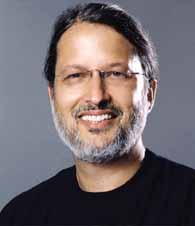|
Executive Interviews: Interview with Amitava Chattopadhyay on Executive Development
October 2007
-
By Dr. Nagendra V Chowdary
-
Companies develop executives in
various ways: by giving them
feedback, coaching, mentoring, and
training. As per a McKinsey survey,
48% of human resources executives
said that most executives think
development is simply a function of
training programs. Training
programs however seldom produce
great executives. Therefore, where
does executive development
programs fit in?
Executive education provides new
knowledge to help executives
understand the problems they are
facing and the ways of solving them.
It helps create a common language,
culture and process of functioning.
These need to be comple-
|
|
mented by
feedback, coaching, mentoring and
training on specific processes
within the company to enable the
executive to apply the new
knowledge effectively within the
context of the organization.
-
Some companies have created
their own development platforms.
First-class corporate universities
such asMotorolaUniversity and GE's
Crotonville can help create strong
corporate cultures, align companies with their strategies, disseminate best
practices, build personal networks,
and spur programs for corporate
change. However, critics say that
these are not the engines that drive
the development of individual
capabilities. They cite informality,
which permeates the learning
experience as a strong impediment to
the desired results. What is your
opinion on such company-owned
development initiatives? Do you
advocate all the companies to have
their own facilities? Or is it better to
send the chosen executives to an
identified school for imbibing the
desired outcomes?
Business schools bring to bear
current knowledge from a very
broad understanding of business
issues. Often times, the knowledge
is developed by the faculty
members teaching at the business
schools. Thus one has the
opportunity to learn from the
individuals whose research has
shed new light on specific
management questions. As such,
when executives attend open
enrollment programs they are able
to learn from the practices of other
firms through interactions with
executives from a broad range of
companies from around the world.
Such programs also allow for
networking opportunities which
can create a knowledge network that
can be tapped in the future. -
What according to you is the best
way of executing executive
development/education programs;
should they be in-house as per a predetermined
curricula (based on the
gap analysis); should they (the
chosen executives) be sponsored for
a sabbatical in a relevant institution;
or should they be coached and
mentored on a longer time horizon,
within the organization?
There is no one right answer. Each
type of program plays an important
role and it is for the company to use
the portfolio of options to ensure
that their executives have the
knowledge and skills to help the
organization remain at the forefront
of their business. -
Leading a turnaround, stimulating a
stagnant business, influencing a
company's long standing direction,
etc. are some of the oft-needed skills
as the managers cruise in their
careers. Can these very important
skills be imparted through executive
development programs?
The knowledge required to take
effective action when faced with the
issues above are certainly deliverable
through executive development
programs. In fact, these are some of
the key contexts in which business
schools can add a lot of value to
companies through executive
development programs.
1.
Training and Development Case Study
2. ICMR
Case Collection
3.
Case Study Volumes
|
